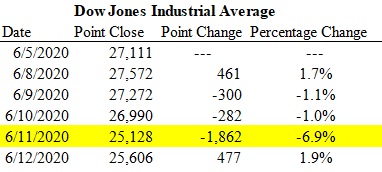By Kuldip K. Ambastha
In this past week, BJ Services LLC and Ascena Retail Group (ASNA) both announced their bankruptcies. BJ Services LLC provides its services to oil & gas companies focused on North American exploration & production, and is voluntarily filing for Chapter 11 bankruptcy. This company intends to sell its assets, and its cementing business is expected to remain a going concern. The company has a presence across both the USA and Canada, and is working with all stakeholders to try to minimize disruption to current client activities.
Ascena Retail Group (ASNA) is the owner of several well-known retail company brands (Ann Taylor, LOFT, Lou & Grey, Lane Bryant, Cacique, Catherines, and Justice), and also is voluntarily filing for Chapter 11 bankruptcy. This company has a plan to close many of its stores, while still being able to access cash, pay employee salaries, and provide employee benefits. All stores in Canada, Puerto Rico, and Mexico will be closed. A financial restructuring will happen over time. Due to the coronavirus pandemic disrupting normal business operations, both BJ Services LLC and Ascena Retail Group needed to declare bankruptcy.
Keywords – BJ Services LLC, oil & gas, exploration & production, cementing, Ascena Retail Group, ASNA, retail, Ann Taylor, LOFT, Lou & Grey, Lane Bryant, Cacique, Catherines, Justice, Chapter 11, bankruptcy, COVID-19, coronavirus, pandemic.
Disclosure – The clients and principals of Ambastha Financial LLC do not have any positions in BJ Services LLC and Ascena Retail Group (ASNA).
Disclaimer – No recommendations are being made via this post. Past performance is not an indicator of future performance. As an investor, you should do your own research and seek professional advice from a Registered Investment Adviser (RIA). You can lose money by investing in stocks and other instruments. Ambastha Financial LLC does not assume any responsibility (legal or otherwise) for any losses that may occur as a result of actions taken based on this post. All content copyrighted © 2020 – Ambastha Financial LLC.

